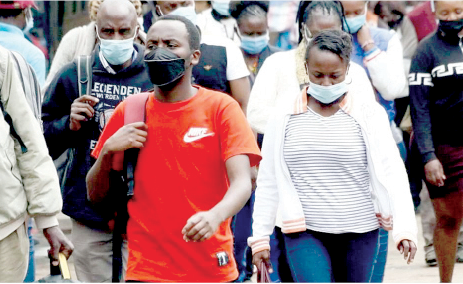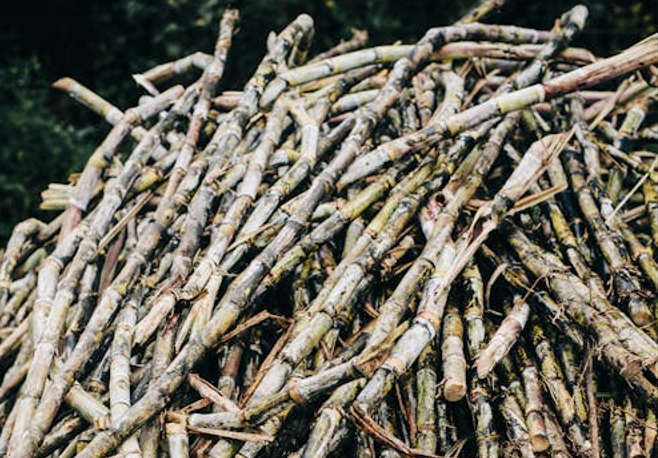Traders count losses as Kenya relaxes wearing of face masks

The emergence of Covid-19 in Kenya on March 12, 2020 marked the beginning of far-reaching economic changes throughout the country.
While the outbreak deeply impacted some through loss of income, others saw immediate business opportunities and tapped into new revenue streams in such areas as selling of face masks and sanitisers.
Ministry of Health imposed a nationwide mask mandate on April 3, 2020, at the height of Covid-19 infections and hospitalisations in the country. However, lifting of the requirement to have face masks in public is threatening to claw back the gains with many mask makers and vendors facing huge losses.
Wholesale mask sellers and makers, among them local tailors, are conerned that the move by government to lift the longstanding mandatory regulation after low Covid-19 positivity rates, threatens to kick them out of business.
Led by Peter Ng’ang’a, who has a wholesale shop in Thika, Kiambu County, the wholesalers are struggling to come to terms with where they will take the major stocks piled in their stores after Kenyans adopted a normal way of life – walking freely without masks.
He said his store has a stock worth over Sh200,000 as he had just restocked his shop a day before the Health Cabinet Secretary Mutahi Kagwe announced the development. “I have a lot of masks in stock worth over Sh200,000 and I surely don’t know where to take it as I have no more customers since the wearing of masks regulation was effected,” he said.
Most of the sellers and makers of masks say they ventured in the business after the pandemic hit their former employers causing them to be fired and have been fully relying on the business for their survival. Rose Nduku, a retailer at Ruiru in the same county said she was forced to stay at home to seek an alternative income generating activity as mask-selling was the only business that used to feed her family.
Economic challenges
“After l got fired following economic challenges brought about by Covid-19, I ventured in mask-selling business and with the review of the pandemic handling regulations; my business is no longer viable. I am now struggling to make ends meet,” she said. And although the Health CS encouraged the wearing of masks during indoor functions to curb the spread of the killer disease, the businesspersons in Thika, Juja and Ruiru in Kiambu County decried the fact that Kenyans are fast embracing the new directive resulting in low supply and or purchase of face cloth.
A spot check by Business Hub revealed that Kenyans have been yearning to go back to their normal way of living.
But the sellers and makers of the protective equipment expressed fear of possible job losses as Kenyans have started ignoring to purchase the key items. “I have for instance, reduced the price of packets. What I would earlier sell at Sh250 is now going for Sh150 and when you bargain; I at times sell at Sh100 because where do I take all this stock,” Damaris Murugi, another major mask seller in Juja town posed.
There was, however, a ray of hope after the government clarified that masks have only been dropped for outdoor activities but they should be used indoors.
Phyllis Wakiaga, CEO Kenya Association of Manufcaturers, said during the pandemic period, manufacturers demonstrated their capacity to keep Kenya moving.
“Disruptions caused by the pandemic drove the country to turn to local solutions to keep the economy moving. Local industry stepped up to produce critical essential items to be used in the fight against Covid-19, including masks,” she said.











